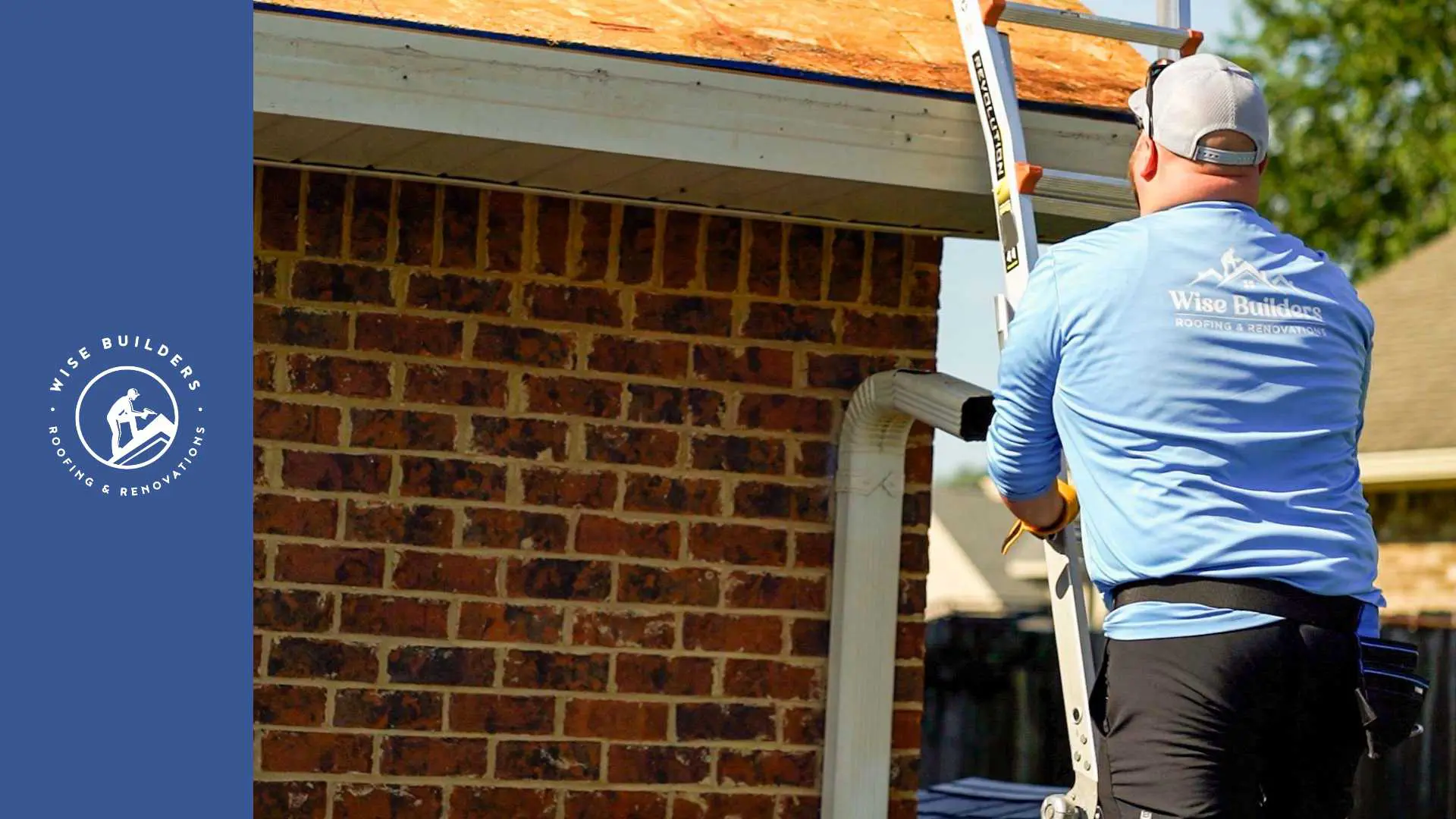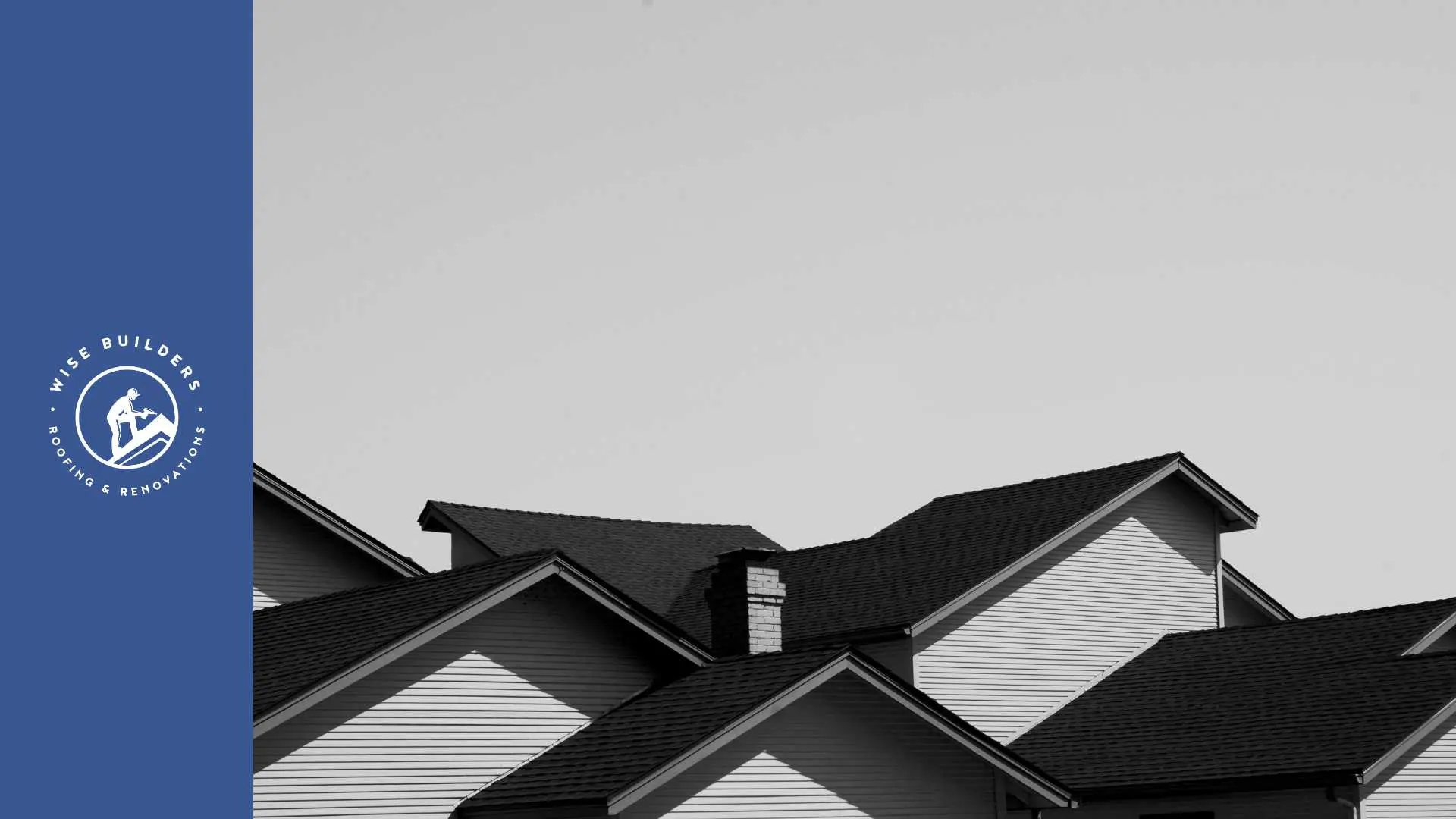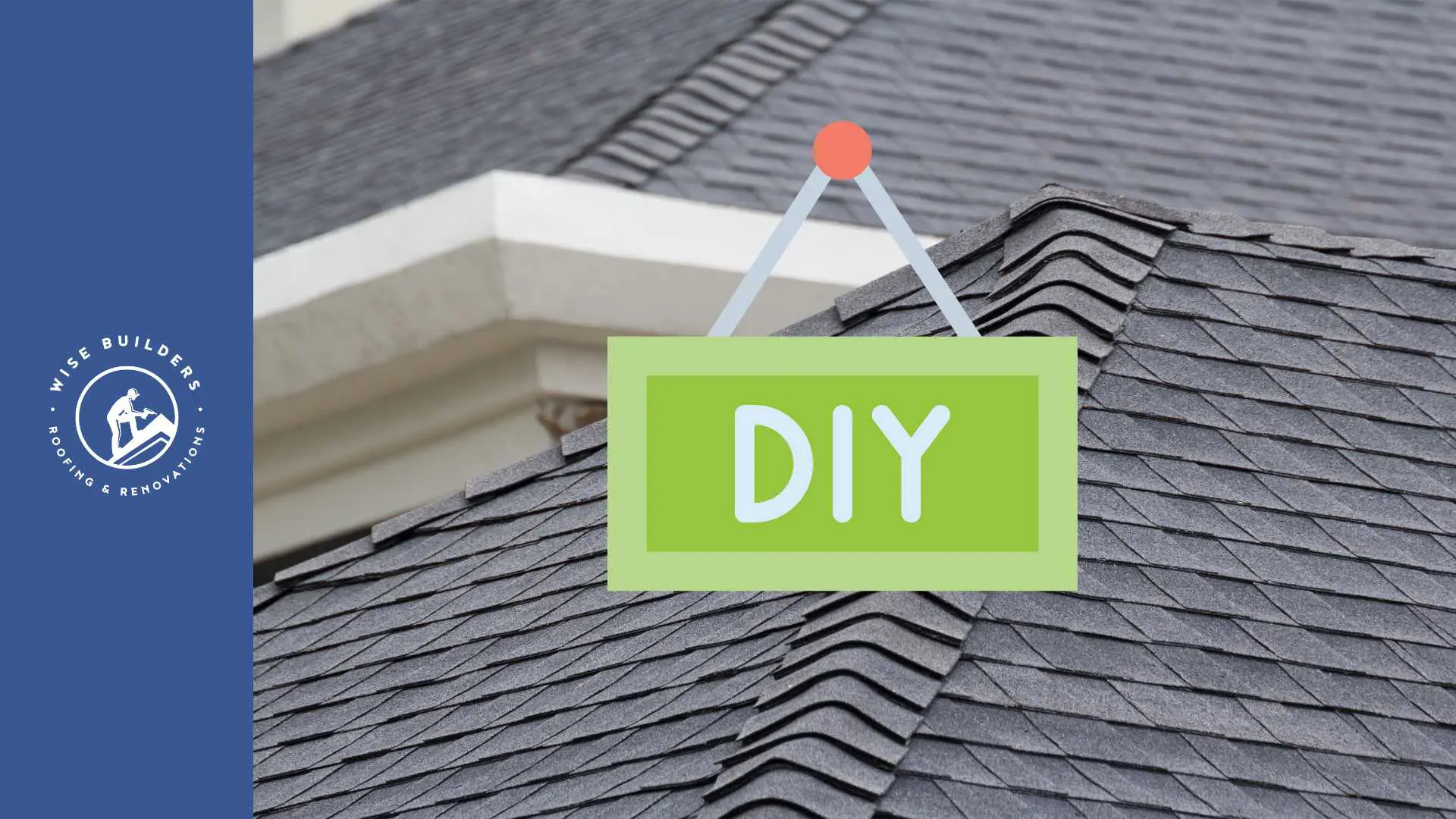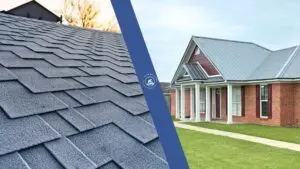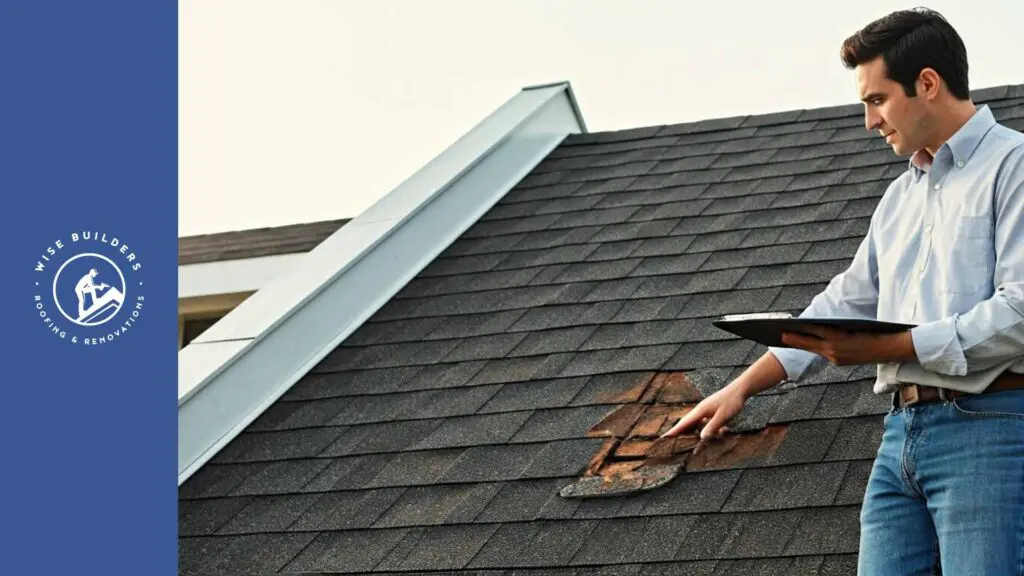
Key Highlights
- Understanding the insurance adjuster’s role is crucial for a smooth claims process.
- Clear communication and accurate information are vital when dealing with adjusters.
- Avoid speculating about the cause of damage, as this can complicate your claim.
- Refrain from admitting fault or liability, as it might negatively impact your payout.
- Don’t rush into accepting the first offer; carefully consider all options and consult professionals.
Introduction
Dealing with roof damage is stressful enough, but navigating the homeowners insurance claims process adds another layer of complexity. This is where the role of the insurance adjuster comes in. Understanding how to interact with the insurance adjuster effectively can make a significant difference in the outcome of your homeowners insurance claim. This article will guide you through common mistakes to avoid, enabling you to approach the process confidently and secure the best possible result for your roof damage claim.
Understanding the Role of a Roof Insurance Adjuster
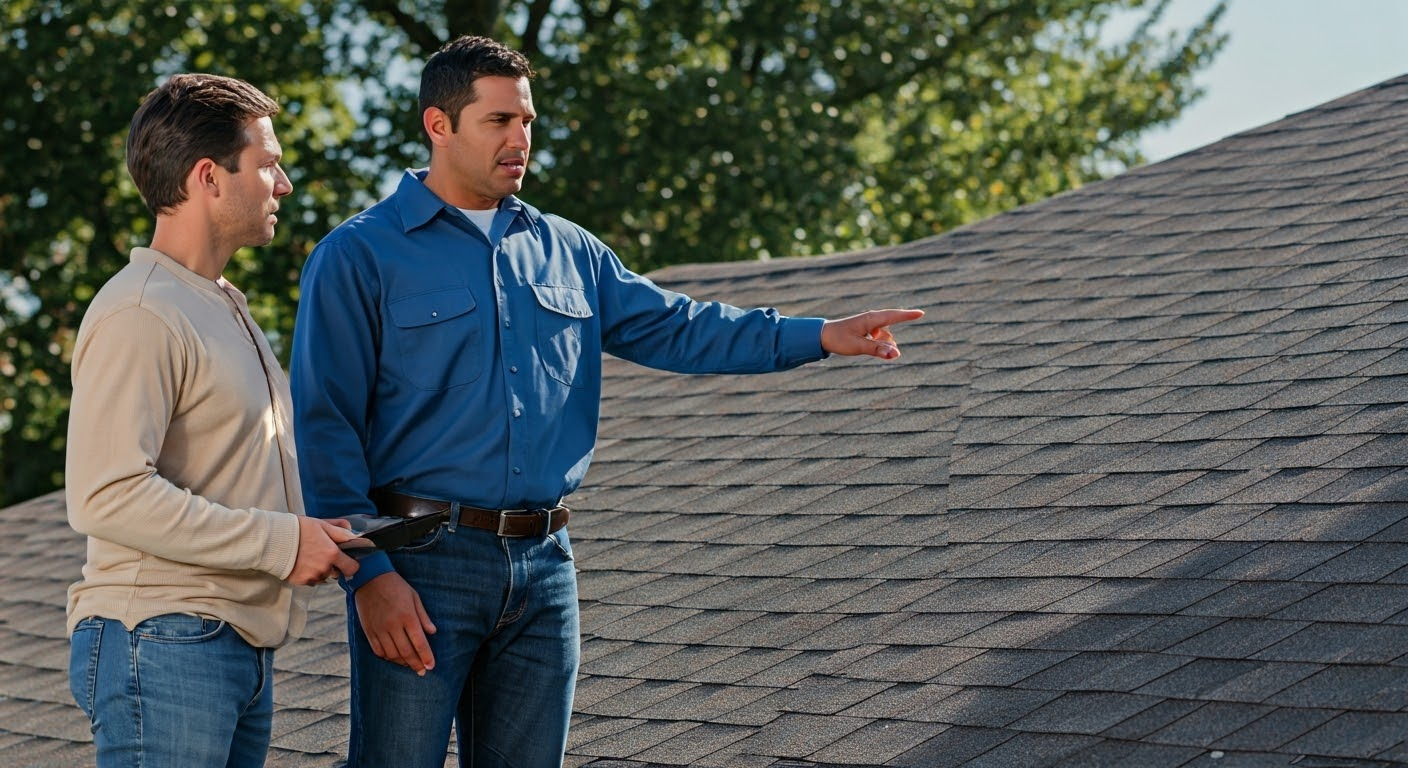
A roof insurance adjuster is an insurance professional assigned by your insurance company to evaluate the damage to your roof. They act as the intermediary between you and the insurance company, responsible for determining the extent of the damage, verifying coverage under your insurance policy, and ultimately recommending a settlement amount.
Keep in mind that while the adjuster works for the insurance company, their role is to provide an objective assessment of the situation. They are not necessarily “on your side,” nor are they working against you. Understanding their position helps you maintain a professional and cooperative stance throughout the process, increasing your chances of a favorable outcome.
Why Effective Communication is Key
When interacting with the insurance adjuster, clear and effective communication is paramount. The adjuster will heavily rely on the information you provide, along with their own observations, to create a report that determines your payout. It’s in your best interest to convey all relevant details accurately and concisely.
Engage in constructive dialogue with the adjuster, providing them with a clear picture of the situation. Answer their questions honestly and thoroughly, but avoid offering unsolicited opinions or speculations. If you’re unsure about something, don’t hesitate to say you need to gather more information or consult with a professional.
Remember, a positive and cooperative approach goes a long way in the insurance claims process. By fostering open communication and ensuring clarity, you significantly increase your chances of reaching the best possible outcome for your roof damage claim, including roof replacement if necessary.
The Importance of Accurate Information
Accurate documentation plays a crucial role in supporting your insurance claims. Keep detailed records of all communication with the insurance company, including dates, times, and the names of individuals you spoke with. Maintain a file of all photographs and videos documenting the leaks and damage to your roof.
Furthermore, gather all relevant paperwork, including your insurance policy, any repair estimates you’ve received, and receipts for temporary repairs or mitigation efforts. This organized documentation not only strengthens your claim but also makes it easier for the insurance adjuster to assess the situation and process your claim efficiently.
Providing accurate information and supporting documentation ensures transparency and credibility throughout the insurance claim process, ultimately leading to a smoother and more efficient resolution.
Common Misstatements That Can Affect Your Claim

When communicating with a roof insurance adjuster, it’s essential to be mindful of your words. Certain statements, even seemingly innocuous ones, can have unintended consequences and negatively affect your claim. Understanding which topics to approach cautiously or avoid entirely is crucial for protecting your rights and securing a fair settlement.
The following sections delve into specific misstatements that homeowners often make during interactions with adjusters, highlighting the potential pitfalls and providing guidance on how to navigate these sensitive areas effectively.
Speculating About the Cause of Damage
While it’s natural to try and understand the cause of damage, avoid speculating or making definitive statements about it to the insurance adjuster. Unless you are a qualified professional, your assumptions could be inaccurate and might even harm your claim.
Here are a few reasons why speculating about the cause of damage is detrimental:
- Lack of Expertise: You are not expected to be a roofing or damage assessment expert. Providing an inaccurate cause can inadvertently undermine your credibility.
- Contradictory Evidence: Your speculation may contradict evidence gathered by the insurance adjuster or professional inspectors, which can lead to complications.
- Shifting Blame: Even unintentional implications of fault can be misconstrued and potentially reduce your payout.Focus on providing factual information about the damage itself and the events surrounding it without attributing a specific cause. Let the experts determine the cause based on their professional investigation and analysis.
Admitting Fault or Liability
It’s crucial to avoid admitting fault or liability for the roof damage, even if you believe you might be partially responsible. Remember, your insurance policy is designed to cover specific perils, and the adjuster’s role is to assess coverage based on the facts.
Here’s why refraining from admissions of fault is essential:
- Jeopardizing Coverage: Admitting fault could jeopardize your coverage if the damage is attributed to negligence or lack of maintenance.
- Reducing Payout: Even unintentional admissions can influence the adjuster’s assessment and potentially lead to a reduced payout.
- Legal Ramifications: While your primary focus is resolving the insurance claim, it’s crucial to remember that admissions of fault or liability can have legal consequences down the line.
If questions about fault or liability arise, politely decline to answer and reiterate that your focus is on providing information about the damage and the events that occurred. Allow the insurance process to unfold naturally, and if necessary, seek guidance from an attorney to protect your rights and interests.
Statements to Avoid During Your Adjustment Process
When you are going through the roof insurance adjustment process, it is important to present your case clearly and honestly. However, certain statements can inadvertently create red flags for insurance companies. These red flags could potentially lead to a denial of coverage or a lower settlement.
Avoid making statements like “This is the first time I’m filing a claim” or “This will be covered, right?”. While these may seem like harmless remarks, they can be misconstrued as attempts to downplay previous claims or influence the adjuster’s opinion. It is best to stick to the facts, present the evidence, and allow the adjuster to form their own conclusions based on the information provided. Focus on a factual and transparent presentation of the situation, ensuring better outcomes for your claim.
Discussing Past Claims or Roof Issues
Insurance adjusters often inquire about past claims or roof issues to gather a comprehensive understanding of your property’s history. While it’s essential to be truthful, be cautious about volunteering excessive information, especially regarding minor, unrelated, or settled claims that fall outside the scope of the current damage.
Here’s why focusing on the current claim is crucial:
- Creating Negative Assumptions: Discussing past claims can raise unnecessary red flags and lead the adjuster to assume a pattern of filing claims or a higher risk associated with your property.
- Shifting Focus: Bringing up unrelated roof issues might distract from the current damage and potentially complicate the assessment of your claim.
- Confusing Timelines: Mentioning previous repairs or claims could create confusion regarding the timeline of the current damage and its relation to past events.
Focus on providing accurate information about the current roof damage and the events that led to it. If the adjuster has specific questions about past issues, respond honestly but concisely, avoiding unnecessary details that could inadvertently complicate your claim.
Agreeing to a Settlement Too Quickly
While it’s tempting to accept the first settlement offer, especially when you’re eager to repair your roof, it’s crucial to carefully consider all your options before making a decision. Rushing into a quick settlement might result in receiving less than you deserve for the necessary repairs or replacement.
Here’s why taking your time is important:
- Initial Offer is Not Final: Remember that the first offer is often a starting point for negotiations and may not reflect the full extent of the damage or necessary repairs.
- Professional Consultation is Key: A trusted roofing contractor can provide a detailed assessment and accurate cost estimate, giving you leverage to negotiate a fair settlement.
- Understanding Your Policy: Take the time to thoroughly review your insurance policy to ensure you clearly understand your coverage, deductibles, and any limitations.
Don’t feel pressured to accept an offer on the spot. Request a written copy of the settlement offer and take the time to consult with professionals like roofing contractors or even a public adjuster to ensure you are being treated fairly and receiving the full compensation you are entitled to.
Conclusion
In conclusion, it is imperative to prioritize your mental health and well-being in today’s fast-paced world. By implementing simple yet effective tips like maintaining a healthy sleeping routine, being mindful of what you consume, engaging in therapeutic activities, and fostering a positive mindset, you can significantly enhance your mental wellness. Remember, self-care is not selfish but essential for leading a fulfilling and balanced life. Take the time to prioritize your mental health – you deserve it.
At Wise Builders, We ensure our clients receive the best possible outcomes. Our commitment to quality workmanship and customer satisfaction is unwavering, making us the top choice for residential Roofing services in our community.
Frequently Asked Questions
What should you not say to a roof insurance adjuster?
Avoid mentioning phrases like “My roof is old” or “I need a new roof.” Instead of highlighting your roof’s age or suggesting a specific solution, focus on the damage caused by the covered event. This approach prevents raising red flags that the adjuster might use to minimize your claim.

